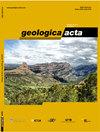伊朗西南克尔曼Baft西部Mohammad Abad地区渐新世-中新世珊瑚礁的古生态与沉积模式
IF 2
4区 地球科学
Q2 GEOLOGY
引用次数: 0
摘要
本文研究了位于W Baft, SW Kerman的Mohammadabad地区的渐新世-中新世珊瑚礁。研究的珊瑚礁包括石珊瑚11科25属33种。珊瑚礁序列在一个硅-塑料-碳酸盐混合台地上分三个旋回沉积。为了了解所研究的珊瑚礁演替的古生态学、礁体结构和沉积模式,采用了基于珊瑚生态位的统计学分析、基于泥灰岩地层粒度的沉积学分析和基于灰岩地层微相分析的沉积学分析。根据统计分析,珊瑚群落包括8个生态型。这些生态型的分布表明,尽管厚度不同,但在所有3个珊瑚礁演替中,基部均存在分枝型和快速生长型生态型,而在珊瑚礁的斜坡、顶部和远端均存在块状、平片状和锥形生态型。停止礁体发育并影响礁体结构的主要破坏现象是碎屑沉积加入碳酸盐体系。这种泥沙负荷的增加被记录为泥灰地层。碎屑沉积物负荷的加入,稀释了体系的碳酸盐含量,降低了盐度、水体透明度和光照水平,限制了珊瑚虫有利的附着硬基质,破坏了营养和氧通量,使珊瑚礁窒息。本文章由计算机程序翻译,如有差异,请以英文原文为准。
The paleoecology and depositional model of the Oligo-Miocene coral reefs in the Mohammad Abad Area, the west of Baft, SW Kerman, Iran
This paper deals with the Oligo-Miocene coral reefs in the Mohammadabad Area, W Baft, SW Kerman. The studied coral reefs include 11 families, 25 genera and 33 species of the scleractinian corals. The coral reef successions have deposited in three cycles on a mixed siliciclastic-carbonate platform. To understanding the paleoecology, reef architecture and depositional model of studied reefal successions, statistical analyses based on the coral niches, sedimentology analyses based on the grain size of the marly strata and microfacies analyses on limestone strata have used. Based on the statistical analyses, the coral community includes eight ecotypes. The distribution of these ecotypes indicates that, despite of various thicknesses, in all three coral reef successions, the branching and fast growth ecotypes are present at the basal parts and the massive, placoid and meandroid colonies are recorded in the slope, crest and distal parts of the reefs. The main disruptive phenomenon that stopped the reef development and affected the reef architecture has been the addition of clastic deposits to the carbonate system. This sediment load increase is recorded as marly strata. By The addition of clastic sediment load to the system, the carbonate content of the system has diluted, the salinity, water transparency and photic level is decreased, the favorable attachment hard substrate for coral polyps is limited, the nutrient and oxygen flux is disrupted and the coral reefs are suffocated.
求助全文
通过发布文献求助,成功后即可免费获取论文全文。
去求助
来源期刊

Geologica Acta
地学-地质学
CiteScore
2.50
自引率
6.70%
发文量
13
审稿时长
>12 weeks
期刊介绍:
- Relevant conceptual developments in any area of the Earth Sciences.
- Studies presenting regional synthesis.
- Thematic issues or monographic volumes presenting the results from one or more research groups.
- Short papers reflecting interesting results or works in progress.
- Contributions and results from Research Projects, Workshops, Symposiums, Congresses and any relevant scientific activity related to Earth Sciences.
- Geologica Acta aims to stimulate rapid diffusion of results and efficient exchange of ideas between the widespread communities of Earth Science researchers (with special emphasis on Latinamerica, the Caribbean, Europe, the Mediterranean
 求助内容:
求助内容: 应助结果提醒方式:
应助结果提醒方式:


